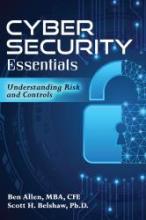Search Results: 31 - 40 of 8018
display
Earth's Natural Hazards: Understanding Natural Disasters and Catastrophes
Author(s): Ingrid A. Ukstins, David M Best
OUR PLANET IS A DYNAMIC PLACEGlobal pandemics, earthquakes, volcanic eruptions, cyclonic storms and many other natural hazards occur across our planet every day and have significant human impact. This textbook examines how normal processes of the Earth-atmosphere-hydrosphere-space systems result in ...Supply Chain Simplified
Author(s): James Kirby Easterling
Supply Chain Simplified was written to explain the various facets of supply chain management: the people, processes, and systems used in what is now the hottest field in business, in a way that everyone can understand. Whether you’re a high school or college student preparing for your future, someon...Severe and Hazardous Weather: An Introduction to High Impact Meteorology
Author(s): Robert Rauber, John Walsh, Donna Charlevoix
Extreme weather and climate events have impacted every region of the United States and many regions throughout the world during the five years since the publication of the previous edition of Severe and Hazardous Weather. The recent fires in California and Oregon were heartbreaking to watch. The num...Cyber Security Essentials: Understanding Risk and Controls
Author(s): Scott H. Belshaw, Ben Allen CISM CRISC
Since the 1990's, the internet has transformed business by enabling the collection, analysis, and almost instantaneous transmission of data. It has also transformed crime. The demand for 24-hour online access to databases and information has created unprecedented opportunities for unethical people. ...Reading the Web: Strategies for Internet Inquiry
Author(s): Elizabeth Dobler
Reading the Web: Strategies for Internet Inquiry outlines web literacy in a user-friendly way that helps educators provide students with practical skills and strategies needed to approach the internet with discernment. One of the ways it accomplishes this is through the QUEST model: questioning, und...History and Tradition of Jazz
Author(s): Thomas E Larson
History and Tradition of Jazz is not just a story of jazz music and musicians, but the struggle to achieve, create, and invent for the sake of this musical art form. The publication features stories and legends of important events and people who shaped jazz history, while addressing how the music h...Mechanisms and Logic in Human Physiology
Author(s): Erik P. Silldorff, Gerald D. Robinson
Mechanisms and Logic in Human Physiology is a next-gen learning resource, adapting to a variety of pedagogical strategies as well as strongly promoting higher order thinking, the ultimate goal of 21st century pre-clinical education. Physiology - a study of complex systems in motion - requires a deep...Algebra for Calculus: A Guided Inquiry
By: The POGIL Project, Catherine Bénéteau, Zdenka Guadarrama, Jill E. Guerra, Laurie Lenz, Andrei Straumanis
about product
Algebra for Calculus: A Guided Inquiry
Author(s): The POGIL Project, Catherine Bénéteau, Zdenka Guadarrama, Jill E. Guerra, Laurie Lenz, Andrei Straumanis
These guided activities were written because much research has shown that more learning takes place when the student is actively engaged and when ideas and concepts are developed by the student, rather than being presented by an authority - a textbook or an instructor. The activities presented are s...Geology of National Parks
Author(s): David A. Foster, David Hacker, Ann G Harris
The National Parks of the United States preserve our nation's iconic landscapes and some of the finest examples of geologic heritage. From glaciers to caves, volcanoes to canyons, or mountains to coral reefs, the nation's geologic features and landforms have been an important part of the American ex...Diversity, Anti-Racism, and the College Experience
Author(s): Aaron Thompson, Joseph B Cuseo
Diversity, Anti-Racism, & The College Experience examines diversity, equity, and inclusion from a multidisciplinary perspective that integrates historical, sociological, psychological, and political factors. Blending hard empirical data with poignant personal stories, the book provides research-base...







